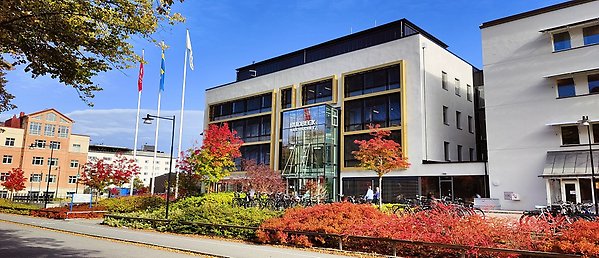[The Svedberg seminar] – Leveraging innate immunity against epidemic and pandemic viruses
September 18, 2024 @ 15:15 – 16:15 CEST
Michael Gale
Professor
The University of Washington School of Medicine, USA
Bio
Dr. Gale’s research program is focused on understanding the virus-host interactions that regulate innate immunity against virus infection. His group studies SARS-CoV-2, CoVs, HIV, SIV, hepatitis B virus, hepatitis C virus, influenza A virus, hantaviruses, West Nile virus, Zika virus, Dengue virus, and other RNA viruses, aiming to define the processes of virus recognition by the infected cell, and how viruses control of innate immunity and immune programming to direct infection outcome. A major goal of the Gale laboratory is to define therapeutic targets to enhance immunity and vaccination outcomes against virus infection. Dr. Gale is a Principle Investigator (PI) of UWARN, one of the NIH Centers for Research on Emerging Infectious Disease (CREID), and he also leads the NIH/DAIDS Nonhuman Primate Functional Genomics Core for HIV Vaccine Development. His group conducts functional genomics analyses of virus infection including assessment of preclinical HIV/SIV vaccines being tested in NIH-supported studies. These activities include bioinformatics/computational analyses of infection and vaccine responses and their linkage with mechanisms of action and disease or protection outcomes. Gale lab research is among the top 1% cited worldwide in the field of Microbiology since 2014. Dr. Gale teaches virology, immunology, infectious disease biology, and public health to medical students and graduate students, and is a member of the editorial board of several biomedical research journals.
In October 2024 Dr. Gale will relocate his lab to the University of Minnesota (UM) School of Medicine where he will be the Chair of the Department of Microbiology and Immunology, and Director of the Institute on Infectious Disease. Contact: mgale@umn.edu
Leveraging innate immunity against epidemic and pandemic viruses
Innate immune defenses are essential for restricting virus replication and for programming the adaptive immune response against infection. Our studies are focused on defining the innate immune response to emerging viruses. We have ongoing studies to define pathogen recognition receptor interactions and signaling events triggered by viral pathogen associated molecular patterns (PAMPs) across viral genera that drive innate antiviral immunity and program/enhance the adaptive immune response against infection, with special focus on neuroinvasive flaviviruses, SARS-CoV-2, HIV, and influenza A virus. We aim to translate our findings to build strategies for antiviral therapy and immune enhancement. This work has defined the RIG-I-like receptors, including RIG-I, MDA5, and LGP2, as critical factors in the recognition of RNA virus infection and immune protection against disease. We have identified distinct PAMP/RLR interactions that serve to program the outcome of infection and immunity. An overview of our emerging virus research program, including SARS-CoV-2, will be presented, followed by an in-depth presentation of our work to define Zika virus infection, immunity, and disease.
Host: Jan Komorowski jan.komorowski@icm.uu.se

